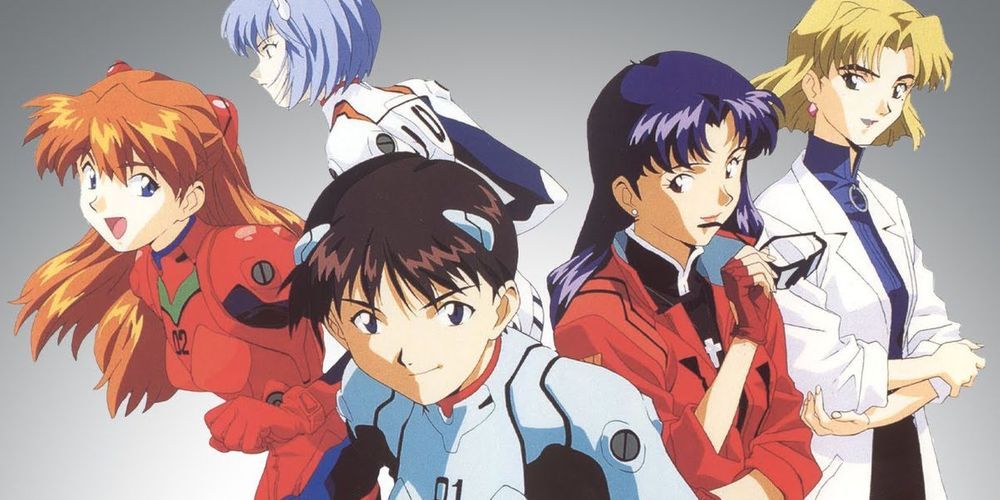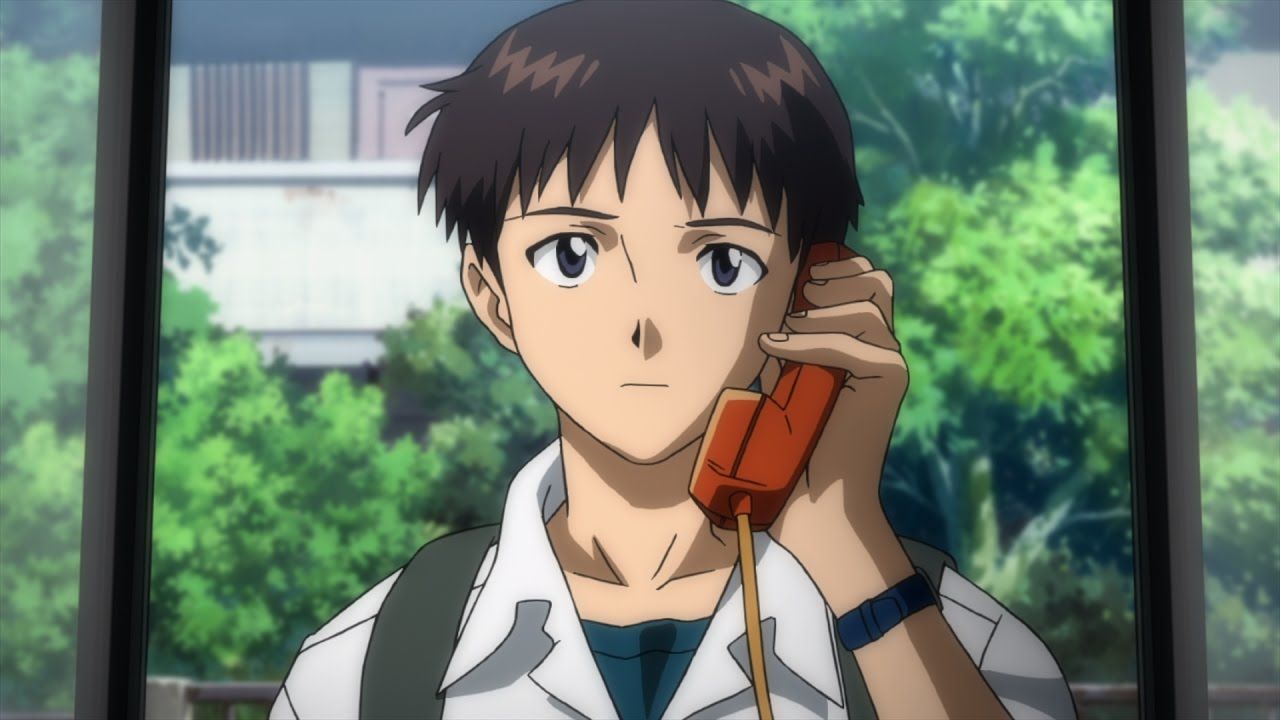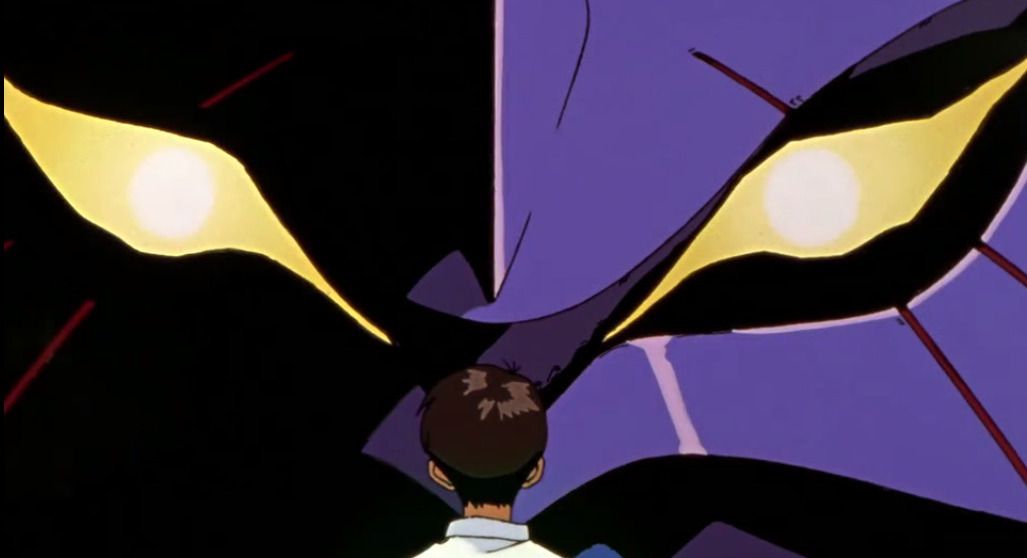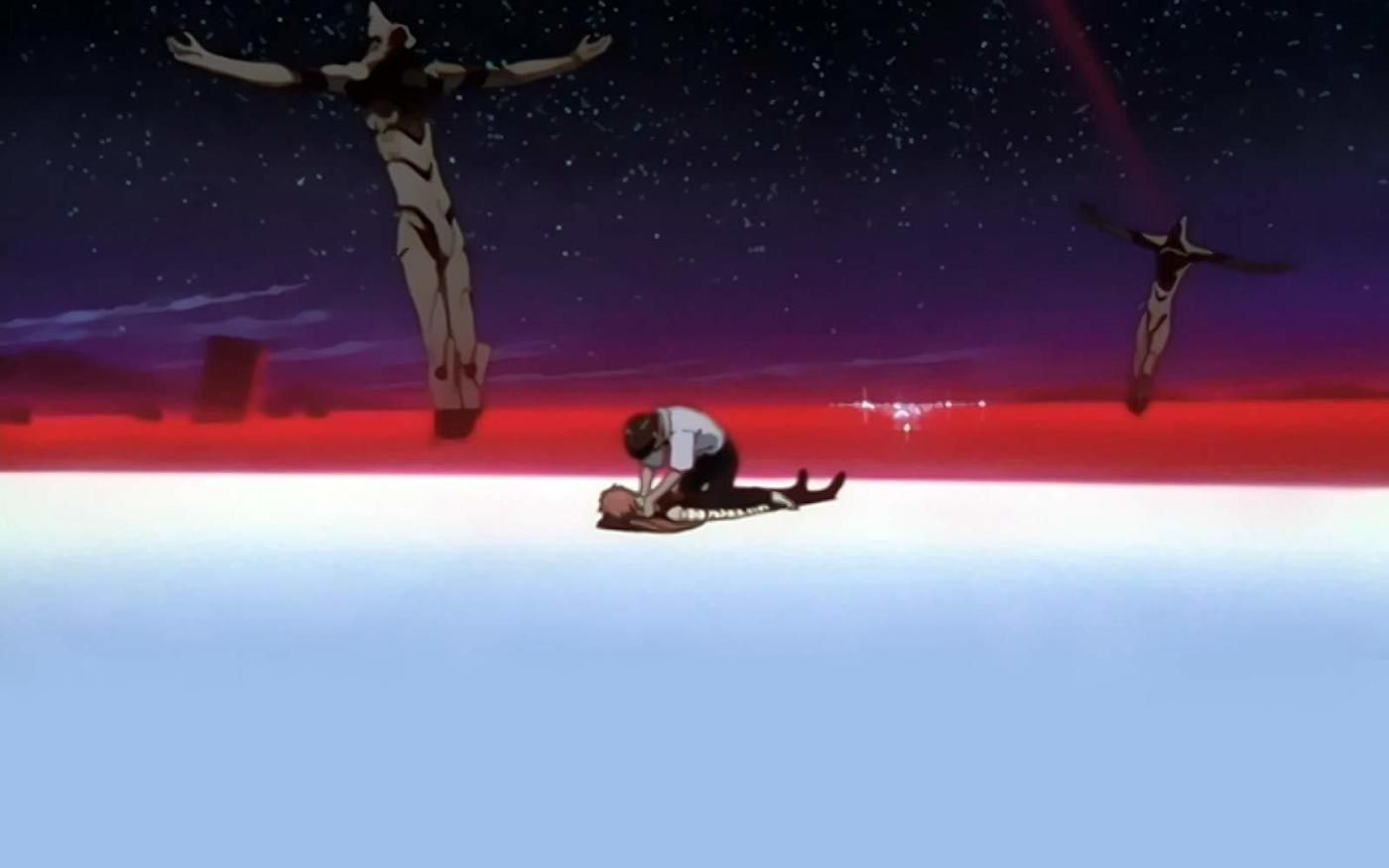Even if all you have is a vague awareness of anime you've probably heard of Neon Genesis Evangelion, which is now celebrating its 25th anniversary. Of all the words frequently used to describe Evangelion -- deep, confusing, incredible, pretentious -- the most accurate would have to be subversive. Whatever you may think of the incredibly divisive anime classic, it is impossible to argue that it is a cut and dry mecha action series. And at the heart of its subversion is the presentation of its protagonist, Shinji Ikari.
On the surface, Neon Genesis Evangelion is a show about teenagers piloting giant robots to fend off alien attackers seeking to destroy Earth. This is to say that, on the surface, it is a mecha anime. But, much like the giant robots from which the series takes its name, the flashy superficial elements disguise something far messier, and far more complex. Sure, the show still features big robots with big weapons that generate big explosions while fighting big aliens, but quickly, these sequences transform the main attraction into a sort of danse macabre that reflects the inner torment of the series' pilots.
To put it less pretentiously, the show isn't about the robots as much as it is about the pilots, and why they do or do not want to pilot the robots. There's no better example of this than Shinji Ikari himself, and his inner struggles still makes him a standout of the genre.
Get in the Robot, Shinji
It is difficult to ignore the obvious intentional parallels between Shinji Ikari and the first Gundam protagonist, Amuro Ray. Both are boys in their early teenage years (Amuro is 15 and Shinji is 14) and both are the sons of the scientists responsible for developing the mechs that they pilot. But while they do have these commonalities, they are in every other way, inverted.
Where Amuro has the classic anime protagonists' drive to fight against even the worst of odds, Shinji has the exact opposite drive: repeatedly refusing to, as the infamous quote goes, "get in the robot." Whereas Amuro fights with a notable degree of foolish bravery and a sense of personal honor, Shinji fights because it is the only way that he can get the love and respect from the people around him... or at least, try to. For most heroes, the refusal of the call is an integral part of their journey, but it only happens once. Shinji Ikari, on the other hand, refuses the call to get into the robot nearly every time it is made, and when he does eventually heed it, it is not for any reason other than to please the people around him.
In place of the blind and borderline suicidal optimism of his mecha and shonen counterparts, Shinji is consumed by self-doubt, anxiety and loneliness. He is a deeply flawed character in a way that had not been seen in many anime at the time, and especially not in anime about robots fighting aliens. Though other characters do have self-doubt, it is often depicted as something which fuels their insatiable drive for success against the odds. It's the emotional energy with which they charge up their super moves, but for Shinji, it is the greatest obstacle he faces. It is not fear or hatred of the angels that drives him, instead, it is his fear of being alone with the person that he hates most of all: himself.
The Problem with Shinji Ikari
Shinji Ikari is as divisive among the Evangelion fandom as the show is in anime fandom as a whole. The reason for this, or the problems most commonly ascribed to the character, is that he is annoying, whiny, too emotional and that he runs away and refuses to fight to save mankind. But this is not the real problem, it's only part of it. The real issue with Shinji is that he is too relatable.
The purpose of shonen anime protagonists is that they are aspirational: Naruto pushes through ridicule, Goku loses and then trains to win the next fight and Edward Elric was dealt a bad hand but still managed to change the world. But Shinji isn't aspirational. He does not represent who the audience wants to be; instead, he represents something much closer to who the audience already worries that they are. Where his peers are extraordinary -- with hidden reserves of strength and secret origins which boost their fighting abilities and validate their insane resolve -- Shinji is a normal 14-year-old struggling with his identity and sense of self-worth, who is then asked by his estranged father to physically and emotionally harm himself to save the human race.
In this sense, Neon Genesis Evangelion is the most shonen shonen to ever shonen. If the idea behind shonen storytelling is that they are coming of age stories aimed at young boys (but really just young people), then there is no better example than this series. Most likely, none of us will ever fight in a tournament of escalating difficulty that results in us finally perfecting our super move at the last possible moment; nor will we prove all of our detractors wrong and become the ninja president of our town, and we will certainly never catch 'em all. While we will (hopefully) never battle space angels in giant mecha at the end of the world either, many of us have likely been completely overwhelmed by the expectations put upon us by the world, that we've sacrificed parts of ourselves to keep up appearances and to fit in, we've been scared, depressed, lonely, confused and we haven't always maintained our optimism.
Evangelion's (Fourth) Impact
25 years after the first appearance of Shinji Ikari in Neon Genesis Evangelion on Japanese television, anime has changed a lot. The variety of different kinds of shows has exploded, and anime has entered the mainstream in more previously unimaginable ways. There have been countless protagonists of different sorts, and yet Shinji is still notable for his out and out rejection of everything that we have come to expect from a typical action hero. While few characters match him it is clear from the state of modern shonen that the boy who refused to get in the robot had a resounding impact on the way these characters are written.




